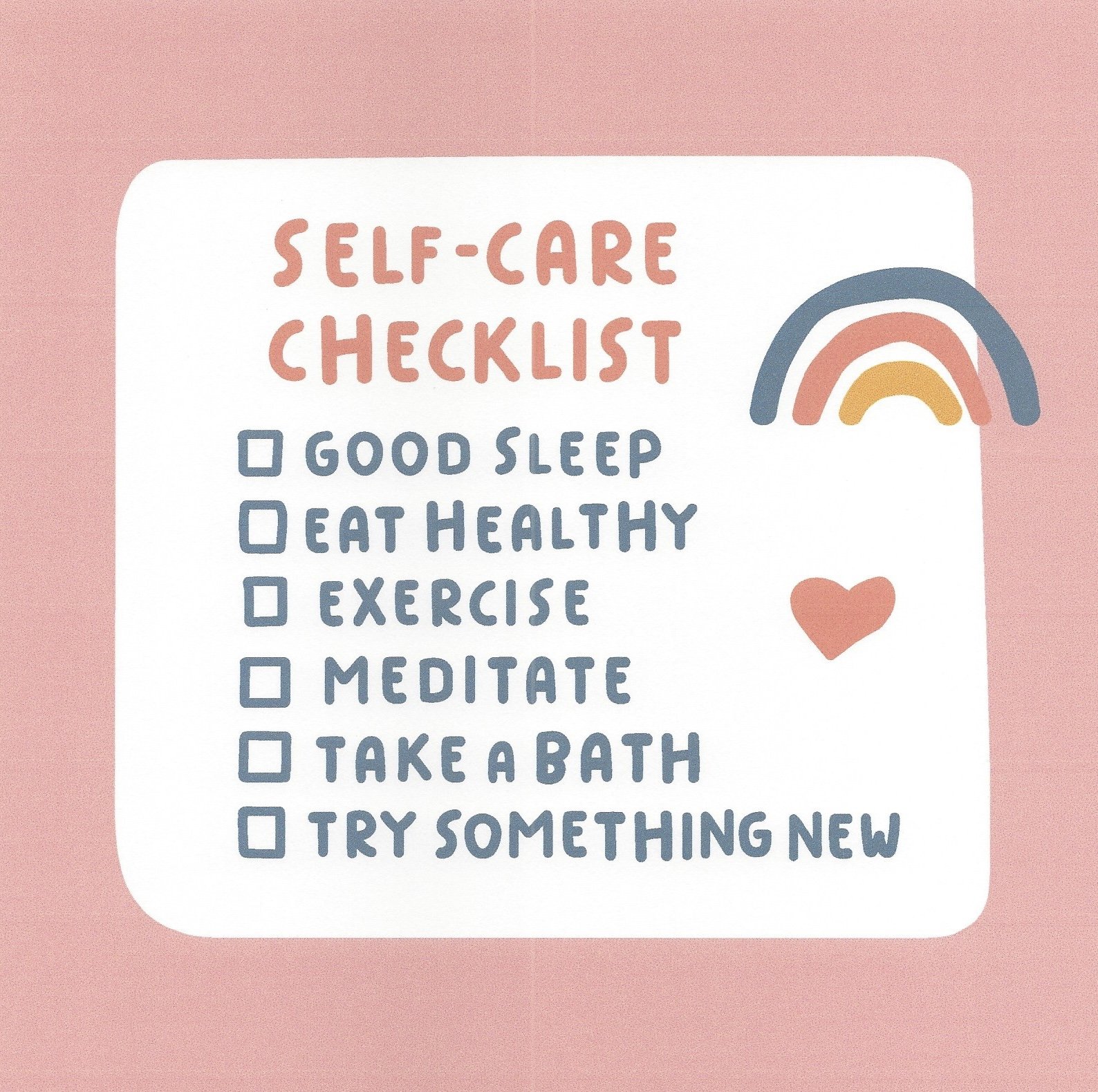Are you a workaholic?
Are you a workaholic? I know without hesitation that I used to be when I worked as a lawyer in the City of London. I would get into the office early and leave later than most people. Even when I got home, I would not switch off. I was embarrassed once when I was contacted by the company that provided our management software, as I had been the only lawyer in the United Kingdom to log on during Christmas Day. They wanted my permission to mention it in an article! It is fair to say I received some ridicule from colleagues who saw the piece when it was published….. Honestly, like any addiction, I miss it and some days, I still feel that urge coming back.
Are you a workaholic? I know without hesitation that I used to be when I worked as a lawyer in the City of London. I would get into the office early and leave later than most people. Even when I got home I would not switch off. I embarrassingly once got contacted by the company that provided our management software, as I had been the only lawyer in the United Kingdom to log on during Christmas Day and they wanted my permission to mention it in an article! It is fair to say I received some ridicule from colleagues who saw the pice when it was published….. Honestly, like any addiction, I miss it and some days, I still feel that urge coming back.
Workaholism isn’t about how many hours you work—it’s about your ability to disconnect from your job. Arguably, it is a survival mechanism that deals with insecurities or the need to be successful. To help determine whether you might be a workaholic, read the following statements and rate the degree to which each one describes you using the following scale: 1 = never true; 2 = seldom true; 3 = sometimes true; 4 = often true; 5 = always true.
1. I work because there is a part inside me that feels compelled to work.
2. It is difficult to stop thinking about work when I stop working.
3. I feel upset if I have to miss a day of work for any reason.
4. I tend to work beyond my job’s requirements.
5. Vacations are uncomfortable, and I feel guilty for taking the time off.
Add up your total score. If you rated any of these items a four or a five, you have some workaholic tendencies. But if your total score is 15 or above, you’re displaying significant signs of workaholism. I can help you to find different strategies to help you find balance.
Build a Team Culture of Speaking Up—and Listening
Build a Team Culture of Speaking Up—and Listening
Speaking up at work is crucial for fostering innovation, inclusion, and high performance. Here’s how to ensure your team is a safe community where everyone feels that their voice is heard and their contributions are valued.
Speaking up at work fosters innovation, inclusion, and high performance. Here are some thoughts on ensuring your team is a safe community where everyone feels their voice is heard and their contributions are valued.
Frame conversations as learning opportunities. Before team meetings and discussions, highlight how learning contributes to your team’s effectiveness and emphasize the importance of hearing everyone’s voice. At the end of meetings, be sure to reserve a few minutes to assess the quality of the conversation and create space for final thoughts.
Notice critical moments. Pay attention to feelings of tension or frustration that might emerge when someone speaks up; these are cues to reflect and inquire. This reflection fuels improvement.
Implement process tools. Create systems to solicit your team's reflections and feedback and share your own. You might also introduce meeting pauses to discuss interactions requiring more attention. This practice, known as meta-awareness, keeps teams alert to real-time dynamics and helps people feel comfortable speaking up.
Focus on long-term learning. Make sure your team isn’t concerned solely with short-term targets. Shift their focus to long-term development by asking questions encouraging reflection on leadership and team growth. Recognize and reward team members who reflect openly and share their own speaking and listening experiences to set a positive example.
Overcoming Burnout
Being overwhelmed and burnt out was commonplace when I was a lawyer in private practice. Individuals had their different ways of dealing with it: exercise, hobbies, alcohol, anger, and, in the worst cases, mental health issues. Such situations can cost businesses wasted time and the loss of effective, efficient, and productive time. More importantly, it isn’t a pleasant experience on a human level but can be overcome with healthy practices, creating a more positive and productive workplace environment.
Being overwhelmed and burnt out was commonplace when I was a lawyer in private practice. Individuals had their different ways of dealing with it: exercise, hobbies, alcohol, anger, and, in the worst cases, mental health issues. Such situations can cost businesses wasted time and the loss of effective, efficient, and productive time. More importantly, it isn’t a pleasant experience on a human level but can be overcome with healthy practices, creating a more positive and productive workplace environment.
Everyday experiences in today's fast-paced world often result from prolonged stress, excessive workload, and a lack of balance between personal and professional life. Here’s a brief breakdown of both, as well as some potential solutions to help avoid and alleviate them:
Overwhelm
Overwhelm can occur when tasks or emotions feel unmanageable due to volume or complexity. It's typically a short-term response to stress, but it can lead to burnout if left unmanaged. Signs of overwhelm include:
- Feeling constantly behind or unable to catch up
- Difficulty focusing or prioritizing tasks
- Anxiety, irritability, or frustration
- Physical symptoms like headaches or muscle tension
There are numerous ways to manage overwhelm, but here are a quick few to help you along:
- Break tasks into smaller steps: Focus on one thing at a time.
- Set boundaries: Learn to say no or delegate tasks.
- Take breaks: Step away when stress builds up to reset your focus. A quick walk can do wonders.
- Practice mindfulness: Techniques like deep breathing can help manage anxiety in the moment.
Burnout
Burnout is a state of emotional, mental, and physical exhaustion caused by prolonged, excessive stress. It develops over time, leading to disengagement from work or daily responsibilities. Common signs include:
- Chronic fatigue and lack of energy
- Decreased performance and motivation
- Emotional numbness or feeling detached
- Physical symptoms such as insomnia, frequent illness, or digestive issues. In worst cases, the stress caused by burnout can contribute to the onset of Type 2 diabetes.
Ways to recover from burnout:
- Prioritize rest and recovery: Sleep and relaxation are essential to recharge.
- Set realistic goals: Align your workload with what is sustainable.
- Reconnect with what brings joy: Engage in hobbies, social activities, or self-care.
- Seek support: Talk to a coach, counselor, therapist, or trusted friend about your feelings.
Understanding these states can help you recognize when you’re approaching them and take steps to prevent or recover from them. I’m curious: What strategies have you found effective in managing overwhelm and burnout? If you're comfortable, please share your experiences.
S.M.A.R.T GOALS
Setting specific “SMART” goals is not just an essential requirement for life but a powerful strategy that can significantly improve our everyday lives. It's a familiar concept, but remembering the fundamental actions that can make our lives easier and more successful is always beneficial.
Setting specific “SMART” goals is not just an essential requirement for life but a powerful strategy that can significantly improve our everyday lives. It's a familiar concept, but remembering the fundamental actions that can make our lives easier and more successful is always beneficial.
Dr. Gail Matthews of Dominican University in California conducted a study that found people who write down their goals and share progress with others are 42% more likely to achieve them than those who don’t. This is related to the “Specific” and “Measurable” aspects of SMART goals!
Focusing on plans can be challenging, especially for busy individuals in an ever-demanding world. Setting clear and specific goals is essential for driving business success, but on a basic level, it makes life a little easier. Making meaningful progress becomes more accessible with a roadmap outlining your goals. Here are four practical ways to set and define specific goals for your business:
1. Identify Specific Measurable Objectives: Define specific, measurable objectives aligning with your business vision. Instead of vague goals like "increase sales," aim for specific outcomes such as "increase monthly sales revenue by 20% within the next quarter." Measurable goals provide clarity and allow you to track progress accurately.
2. Make Goals Achievable and Realistic: When setting goals, consider your resources, capabilities, and current market conditions. While setting ambitious goals is essential, they must also be attainable and realistic. Break down larger objectives into smaller, achievable milestones to maintain motivation and momentum.
3. Another key aspect of goal-setting is ensuring the relevance of each goal to your business's growth. By evaluating each goal's alignment with your long-term vision and strategic priorities, you can ensure that every goal directly contributes to your business's success. Goals that are closely tied to core business objectives are more likely to drive meaningful results.
4. Establishing clear deadlines is a crucial part of your goal-setting strategy. By setting time-bound deadlines, you create a sense of urgency and accountability, which in turn helps you prioritize tasks, maintain focus, and track progress effectively. This structured approach keeps you organized and in control, ensuring you stay on track to achieve your goals.
These four strategies are the initial steps to setting and defining specific goals that propel your business forward and keep you on the path to success. As I mentioned, they are not intended to be earth-shattering but a reminder that sometimes we forget that starting with simple steps can make a difference.
These are small snippets to help you start your journey to success. Ask yourself how I can support you one-to-one to accomplish more professionally and personally. If you would like further assistance or guidance in this or other areas, such as setting strategic goals for yourself or your business, book an appointment with me using the link in the contact section so we can talk. You never know, it might just create a change in your future!
Planning, Preparing, and Performing!
Have you ever noticed how difficult it can be to focus on plans, especially for busy individuals, whether it is a business or personal task? What are the mental blocks, avoidance, or doing anything else before returning to your original plan?
One of the ways to help with this is to set clear and specific goals to help drive business success. Making meaningful progress is only possible with a roadmap outlining your goals. Here are four practical ways to set and define specific goals for your business.
Have you ever noticed how difficult it can be to focus on plans, especially for busy individuals, whether it is a business or personal task? The mental blocks, avoidance, or simply doing anything else before actually getting down to your original plan?
One of the ways to help with this is to set clear and specific goals to help drive business success. Making meaningful progress is challenging without a roadmap outlining your goals. Here are four practical ways to set and define specific goals for your business:
Identify Measurable Objectives: Identify specific, measurable objectives that align with your overall business vision. Instead of vague goals like "increase sales," aim for particular outcomes such as "increase monthly sales revenue by 20% within the next quarter." Measurable goals provide clarity and allow you to track progress accurately.
Make Goals Achievable and Realistic: While setting ambitious goals is essential, they must also be attainable and realistic. Consider your resources, capabilities, and current market conditions when setting goals. Break down larger objectives into smaller, achievable milestones to maintain motivation and momentum.
Ensure Relevance to Business Growth: Every goal should directly contribute to your business's growth and success. Evaluate the relevance of each goal by assessing its alignment with your long-term vision and strategic priorities. Goals closely tied to core business objectives are more likely to drive meaningful results.
Set Time-Bound Deadlines: Establishing clear deadlines creates a sense of urgency and accountability. Specify deadlines for achieving each goal, whether short-term, medium-term, or long-term. This helps prioritize tasks, maintain focus, and track progress effectively. Remember to review and adjust deadlines as needed based on changing circumstances.
These four strategies are the initial steps to setting and defining specific goals that propel your business forward and keep you on the path to success. They are not intended to be earth-shattering but a reminder that sometimes we forget that starting with simple steps can make a difference.
WORK-LIFE BALANCE: THE ESSENCE OF NATIONAL WORKAHOLICS DAY
WORK-LIFE BALANCE: THE ESSENCE OF NATIONAL WORKAHOLICS DAY - I consider myself a recovering Workaholic, having been a City of London lawyer, a C-Suite executive in Manhattan, and now a self-employed Business Mentor and ICF Life Coach, but is there a fine line between being one and creating a healthy work-life balance? All need to understand at least the implications of working beyond the standard 40-hour workweek, and this, in part, is how National Workaholics Day encourages work-life balance.
I consider myself a recovering Workaholic, having been a City of London lawyer, a C-Suite executive in Manhattan, and now a self-employed Business Mentor and ICF Life Coach, but is there a fine line between being one and creating a healthy work-life balance? All need to understand at least the implications of working beyond the standard 40-hour workweek, and this in part, is how National Workaholics Day encourages work-life balance.
We live at a time where success is often equated with productivity; as such, it's easy to get swept up in the grind. National Workaholics Day, which I had no idea is observed annually on July 5, is a gentle reminder to all about the importance of creating a work and personal life-balanced existence.
I didn’t know that the term “workaholic" was coined in 1968 by comedian Rodney Dangerfield. It describes individuals who prioritize work above all else, often at the expense of their relationships, health, and overall well-being. I cannot lie and say that I do not recognize that description from my own past work habits. To say I never switched off from work is an understatement.
It's not uncommon for workaholics to work 50, 60, or even more hours each week. But unsurprisingly, the repercussions of such an approach are severe, including burnout and a lack of work-life balance. As I progressed with my legal career past the 20-year mark, the number of relationship breakdowns, heart attacks, and mental health issues suffered by acquaintances and colleagues alike did not escape me. Still, as is frequently the case with addicts, workaholics, or otherwise, I never felt that applied to me.
Understanding that an incessant focus on work can lead to diminishing returns and negatively affect overall well-being is important. Therefore, in celebration, commiseration, or recognition of National Workaholics Day, think about the following as a good start to transforming your life balance, ultimately making you happier and likely more successful.
Try taking a day off: Taking a day off won't sabotage our careers or result in disaster. Enjoy this day by engaging in some form of relaxing activity which could be as simple as reading a book, going for a gentle walk around an art gallery or museum, cooking, or simply indulging in some well-deserved rest while watching old movies.
Think about creating a work moderation plan to ensure a healthy balance. This could include setting boundaries for work hours, carving out time for family and friends, and dedicating time for hobbies and self-care. It's important to try to refrain from carrying workplace stress back home or engaging in work outside of office hours, which as a lawyer, is an art I never mastered, but I now make a point of doing now. Just switch off and give yourself a break. Your productivity is likely to increase as a result.
Reach out to a friend who has similar working patterns to yourself. If you know someone who's a workaholic, gently express your concern for their well-being and explain that you are similar. Offer mutual support and encouragement to adopt a more balanced lifestyle. National Workaholics Day isn't about promoting idleness but emphasizing the importance of a balanced lifestyle that will ultimately make you more effective in your business and personal life. In a world that seems to urge us to do more, try to remember to remember that our productivity doesn’t solely define our worth. Use this day to reconnect with yourself, your loved ones, and the world outside your workspace.
And last but not least, reach out to me for a free initial conversation about how I can help you improve your work-life balance and ultimately become a more successful person by Creating Greater Success With Greater Clarity.
https://calendly.com/petergourri-coaching/success
Happy National Workaholics Day!
Dealing With Poorly Delivered Feedback!
Responding to Poorly Delivered Feedback is never an easy area! Emotions, confusion, and frustration are usually part of the mix! But read on for some helpful tips!
Responding to Poorly Delivered Feedback is never an easy area! Emotions, confusion, and frustration are usually part of the mix! But read on for some helpful tips!
Tough feedback can be hard to process, especially when delivered poorly. Whether you receive feedback from your boss, peer, or employee that is way too harsh, suspiciously nice, or dishonest, how can you navigate your emotions and respond productively?
It’s an area that frequently comes up during my conversations with the clients I work with at all levels of the food chain. I remember receiving poorly delivered feedback occasionally and feeling extremely let down, frustrated, angry, and left with a bitter taste. Don’t do that. The energy you waste could better serve you, creating something positive for yourself and your organization.
Start by figuring out how you feel—and don’t judge yourself. Then take a step back to reconsider the substance of the feedback.
Identify something helpful or constructive, even if it wasn’t communicated well. Then, reward the person’s candor. You might thank them for their honesty and, if you agree with their assessment, commit to an action plan that incorporates their perspective.
Or, if you disagree with their feedback, respectfully explain why. Then, offer feedback on feedback: Communicate the impact of their delivery and how they might improve on it next time.
Finally, take a step back and assess your relationship with this person. If they are unwilling to change how they communicate next time, the relationship might not be worth saving.
Anxiety And That Sunday Evening Feeling!
Anxiety And That Sunday Evening Feeling! As I write this article, it is Sunday night; I have the football playing on my second computer screen, and I am thinking about Monday and what is on my list of things to do, my appointments, and other commitments. I’m busy, really very busy, and I also have to fit in a trip to the gym ......and I’m thinking about my vacation to Europe in a month’s time and, blah blah blah!
As I write this article, it is Sunday night; I have the football playing on my second computer screen, and I am thinking about Monday and what is on my list of things to do, my appointments, and other commitments. I’m busy, really very busy, and I also have to fit in a trip to the gym ......and I’m thinking about my vacation to Europe in a month’s time and, blah blah blah!
You get the picture. It is all rather busy, and honestly, I don’t think anyone would hold it against me if I felt an itsy bitsy little bit overwhelmed, and yet I am very relaxed. In fact, not at all overwhelmed!
So, it got me thinking about a time a decade ago when I still lived in London and worked as a lawyer in the City. It reminded me of conversations I had with fellow lawyer friends about their Sunday evenings and how they were frequently filled with anxiety. We were all the same. It would get to Sunday evening, and suddenly that feeling would hit like a truck. The joy and fun of what you did over the weekend suddenly halt. The worries and anticipation about the work week ahead and who or what would ruin your day first could overwhelm and beat every positive and joyful feeling from the weekend out of you. That assumes you were not working all weekend, which was so frequently the case!
And honestly, even with the benefit of hindsight, it is still unclear whether many of those feelings were justified. Were they interpretations or facts? Do we just allow ourselves to fuel feelings of overwhelm and dread for nothing? We add anticipation to false interpretation allowing your mood to take a nose dive, so you start to feel the dread and associated feelings even without the justification to do so.
So, everything becomes a problem. You look around your apartment, thinking about everything you failed to achieve. The lack of food in the place or, god forbid, clean socks or underwear! Then you check your work email because clearly, you need to add a little more fuel to the fire, and if you are not being irritable with those around you by this point, I’m really impressed! I'll be even more impressed if you get much sleep after all that. Either that or you are telling fibs, but I won’t hold it against you. I get it; you are embarrassed. So, please do me a favor and stop beating yourself up right now.
So stop allowing yourself to get into a Sunday rut and start enjoying your weekend more.....In an ideal world, I suggest you relax more, adopt a healthy, preferably vegetarian style diet, sleep well, meditate, make healthy choices, get to the gym, then modern art galleries, and spend plenty of time organizing yourself……But really! Listen, I was a lawyer; I was always too busy with “important” things to do anything else, and I get it........
Every Sunday, I would make myself almost ill with anxiety at what was coming the following morning, let alone the week. With the best will in the world, any high-stress job is going to mean you have enough to think about, so in lieu of all of those fantastic healthy choices, which by the way, are really good ideas, just try taking it a bit easier and give yourself a break so you can try to get rid of those Sunday evening blues. You deserve to take baby steps to make significant changes to your life.
So here is the pitch, but it is not for sales; it’s a life-choice pitch! When you work with a life coach, they have been trained in skills and tools to help make your life better, and as someone who has been through the process of transformation with my own coaches over the last five years, trust me, it really does work!
When I partner with people, I encourage them to make project plans for significant areas in their lives to maintain clarity, momentum, and traction. I hold them to account without overwhelming them, and I support them. They suffer breakdowns as, ultimately, these can and frequently will lead to beautiful breakthroughs!
So, as you read this on your Monday journey into the office, please take a moment to think about the message I am sharing with you. When I reflect on my past life and how I live now, I wonder what all the Hubba and wasted time worrying about silly things were about.
So, just to remind you, it’s Sunday evening. I am thinking about how busy my Monday and the rest of the week ahead are. I have so much going on! No problem. I’ve got this all-in hand! Time to have a great night’s sleep. I don't know about you, but I'm looking forward to a stress-free productive week.
Is Hiring a Career Coach the Right Move for You?
Is Hiring a Career Coach the Right Move for You? Have you ever wondered whether working with a career coach would be helpful? Hiring one requires time and money, so it’s essential to do your due diligence before making the investment. Here are five reasons you might consider hiring one.
Have you ever wondered whether working with a career coach would be helpful? Hiring one requires time and money, so it’s essential to do your due diligence before making the investment. Here are five reasons you might consider hiring one.
You don’t know what you want to do next. If you’re unsure what will bring you fulfillment, a coach can help you consider possibilities that are a departure from your past experiences or that you hadn’t considered.
You want to improve your resume and LinkedIn profile drastically. Maybe you need support in identifying transferable skills that are relevant to a role you’re interested in, even if they don’t match up precisely with what’s in the job description.
You aren’t over your previous job. Perhaps the way your last job ended has left you feeling wounded and lacking confidence. A career coach can encourage you to move past unpleasant career experiences and rebuild your belief in yourself.
You’ve been interviewing, but it's going nowhere. A coach can help you refine your answers to other common interview questions, polish your executive presence, and practice with you, so you feel confident in your following interview.
You’re not moving up in your career. Coaches can decode performance feedback from your manager to uncover behaviors you need to adjust to continue to grow.
Increase the Chances That Your Best People Will Stay
Increase the Chances That Your Best People Will Stay. Managers are worried about losing their best employees right now — and they probably should be. The marketplace for talent has shifted. You need to consider your employees like customers and put thoughtful attention into retaining them.
Managers are worried about losing their best employees right now — and they probably should be. The marketplace for talent has shifted. You need to consider your employees like customers and put thoughtful attention into retaining them. Here are four steps to try:
1. Be aware of your impact. Pause and consider how you’re showing up as a leader — in your words and actions. Your people are likely worried and stressed. Are you unintentionally adding to their fears and anxieties? Noting your impact will allow you to steer it in the right direction.
2. Give your employees respect and attention. Identify any growth opportunities you can offer. Recognize the positive impact people are having and ask them about their aspirations. Then create a plan to help them achieve their goals.
3. Focus on potential and possibility. Ask your team: What do you envision as the best possible outcome in the next year? What excites you about the future? How can we get there as a team?
4. Make it okay to leave. When someone resigns, respond with gratitude for their time at your company. Far too often, when an employee gives notice, the reaction is akin to an emotional breakup — you’ve been left and feel rejected. There’s a penchant for dismissing their presence and devalue their contribution. Think deeply about what this type of behavior signals to the departing employee. And remember, those that remain are watching.
Remember, Love Yourself Too!
Enjoy life. I do not regret giving service above myself, but I wish I had remembered to love myself and enjoy life for myself more than I did. It is a lesson we can all remember. We can love and care for others while loving and caring for ourselves too.
SELF CARE CHECKLIST - REMEMBER TO LOVE YOURSELF TOO!
I sent one of my Godchildren a message for his 18th Birthday, and the Irony of it as well as the contradiction of it, did not escape me. It was both a reminder and a note to myself too!
Enjoy life, Godson. I do not regret giving service above myself, but I wish I had remembered to love myself and enjoy life for myself more than I did. It is a lesson we can all remember. We can love and care for others while loving and caring for ourselves too.
The Value of Experience and Knowledge of Others
This guy's walking down a street when he falls in a hole. The walls are so steep, he can't get out.
A doctor passes by, and the guy shouts up, "Hey you, can you help me out?" The doctor writes a prescription, throws it down in the hole and moves on.
Then a priest comes along, and the guy shouts up "Father, I'm down in this hole, can you help me out?" The priest writes out a prayer, throws it down in the hole and moves on.
Then a friend walks by. "Hey Joe, it's me, can you help me out?" And the friend jumps in the hole.
Our guy says, "Are you stupid? Now we're both down here." The friend says, "Yeah, but I've been down here before, and I know the way out."
This guy's walking down a street when he falls into a hole. The walls are so steep he can't get out.
A doctor passes by, and the guy shouts, "Hey you, can you help me out?"
The doctor writes a prescription, throws it down the hole, and moves on.
Then a priest comes along, and the guy shouts, "Father, I'm down in this hole. Can you help me out?"
The priest writes out a prayer, throws it down in the hole and moves on.
Then a friend walks by. "Hey Joe, it's me, can you help me out?" And the friend jumps in the hole. Our guy says, "Are you stupid? Now we're both down here."
The friend says, "Yeah, but I've been down here before and know the way out."
Never Underestimate the knowledge of others!




















